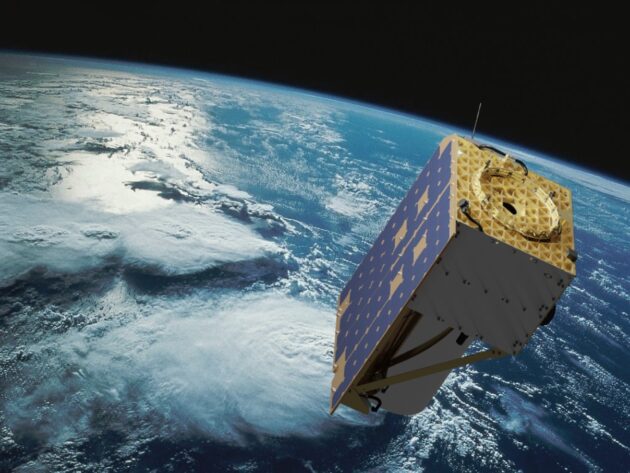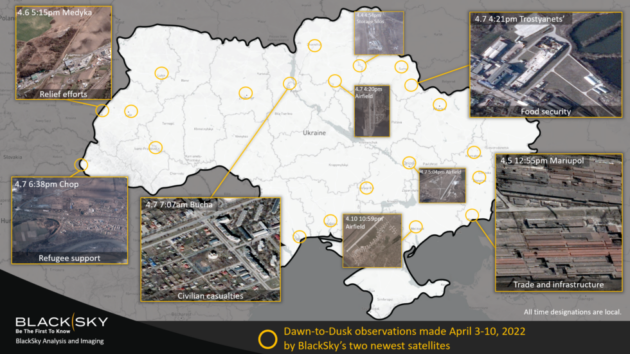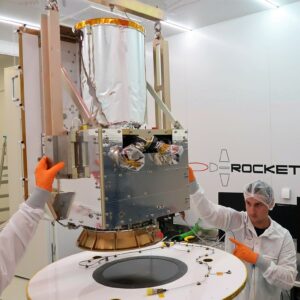
Three satellite imaging companies are in line to receive billions of dollars from the National Reconnaissance Office over the next decade, thanks to a string of contracts announced today.
The companies are the same satellite operators who won study contracts from the NRO three years ago: BlackSky, Maxar Technologies and Planet.
BlackSky, which got its start in Seattle and is now headquartered in Virginia, says its contract for Electro-Optical Commercial Layer imagery sets up a five-year base subscription with a starting value of $85.5 million, plus options to extend the contract to 10 years. If all options are exercised, total contract value would be $1.021 billion.
Colorado-based Maxar, which was the first to provide commercial satellite imagery to the NRO, would be paid $300 million per year for the first five years, plus options for $1.74 billion in the following five years. Total potential value would be $3.24 billion. California-based Planet didn’t disclose the value of its contract.
BlackSky’s stock nearly doubled in value today, ending the trading session at $2.33 per share. Maxar’s share price rose almost 18% to close at $28.86. Meanwhile, Planet’s stock was up 14%, finishing the day at $5.73.
Frequently updated commercial imaging has proven its value to the U.S. intelligence community in crises such as the war in Ukraine. The NRO said today’s deals represent the agency’s largest-ever commercial imagery contract effort.
“The NRO has a longstanding strategy of ‘buy what we can, build what we must,’” NRO Director Chris Scolese said in a news release. “The diversity offered by our expanding architecture comprised of both commercial and NRO systems increases our resilience and enables an integrated approach to the threats facing our nation.”
BlackSky CEO Brian O’Toole said the contract award marked “a really monumental and pivotal day” for his company. “We’ve just been validated by one of the most important customers in the world,” he told GeekWire.

O’Toole said BlackSky’s ability to revisit imaging targets frequently has been a key selling point. “What’s expanded here is the need for high-frequency monitoring of strategic locations,” he said. “We now have a platform that’s the first of its kind that can do that, and provide hourly monitoring. And we can deliver that data extremely fast, directly into the government system.”
BlackSky already has 14 of its Global satellites in low Earth orbit, and is on track to start adding its more advanced “Gen-3” satellites to the constellation, O’Toole said. LeoStella, a joint venture owned by BlackSky and Thales Alenia Space, is building the Gen-3 satellites at its headquarters in Tukwila, Wash.
“We’ll begin expanding the constellation next year with Gen-3 capability, and that’ll grow up to 30 satellites,” O’Toole said. “When we get to 30, that’s going to bring our hourly monitoring down to 30-minute monitoring capability.”
Thirty satellites won’t necessarily be the limit: “We can have just-in-time capability, so we can build and launch as the market demands,” O’Toole said. “We’re not subject to the old model where you need to start five years ahead of time to figure out what your capacity might be.”
O’Toole said BlackSky’s Seattle facilities will continue to be in on the action.
“Look, Seattle is where this company started, and it’s at the heart of our space capabilities,” he said. “We’re continuing to expand in Seattle. In fact, we’re going to be expanding into a new office in the coming years. That is where our center of excellence is for space, and will remain so for as long as we’re in business.”





